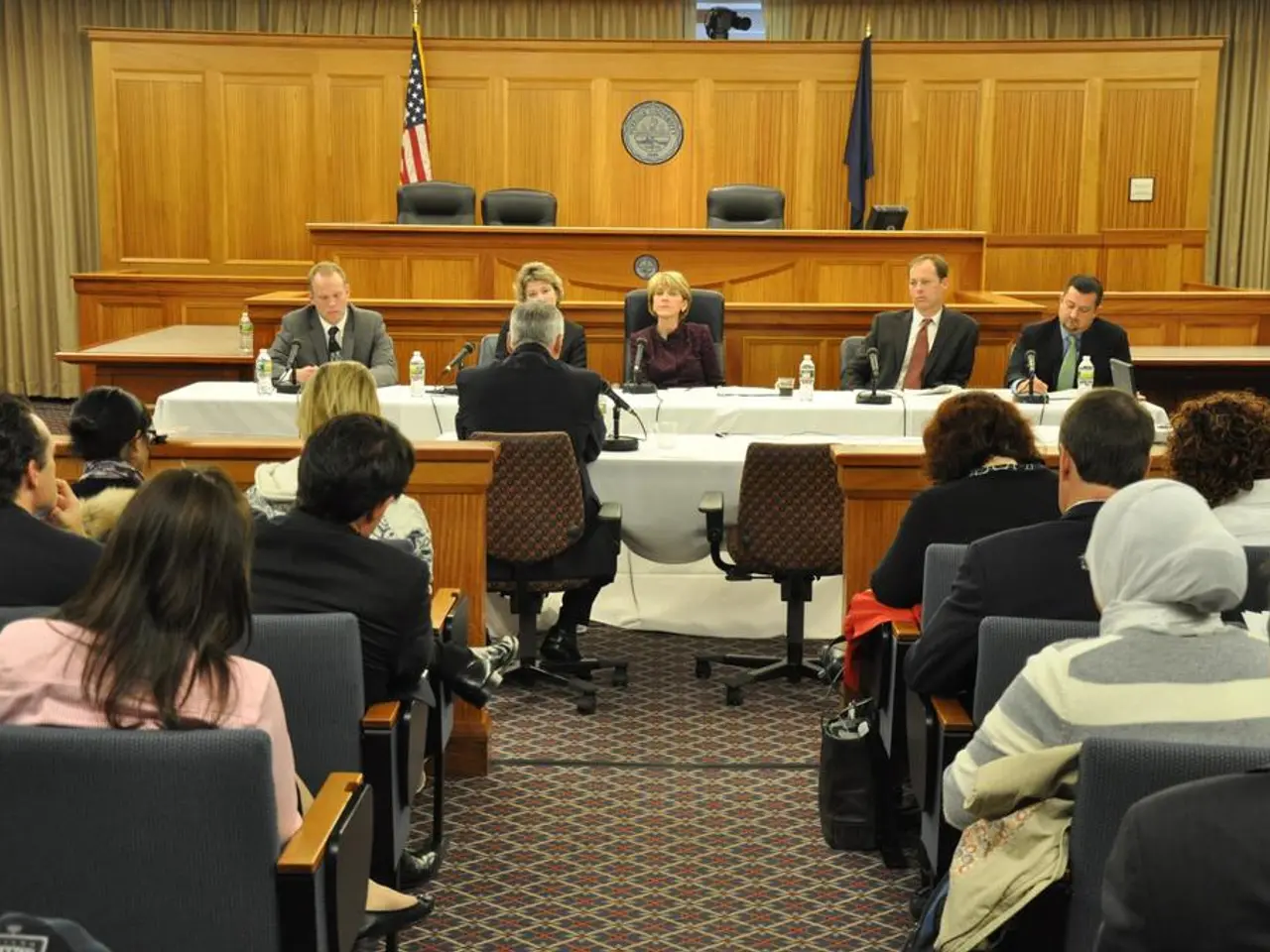Slowing Down Progress of Left-Wing Political Representatives within the Union
In a recent development, The Left Party (Die Linke) has faced a setback in securing representation in the Parliamentary Control Committee of the Bundestag. This committee is responsible for overseeing the work of the intelligence and security services, a critical role in maintaining democratic checks and balances.
The reasons for this failure are multifaceted. The party's weakened political position and internal fragmentation, particularly following the departure of Sahra Wagenknecht and several members who formed a new party, have played a significant role. The resulting lack of cohesion and influence within The Left has been further exacerbated by some former members who have failed to return their mandates, weakening the party's parliamentary strength.
Moreover, The Left's ambiguous stance on key foreign and domestic policies has marginalised it. While the party occasionally criticises Germany’s rearmament and war policies, it has generally supported war funding and coalition politics, which has undermined its claim to leftist opposition and reduced its leverage for committee assignments.
The potential consequences for the coalition and German democracy are significant. Without The Left on the Parliamentary Control Committee, there is less critical scrutiny of government actions, potentially weakening democratic checks and balances. The absence of The Left in key control functions may deepen political polarization and reduce trust in coalition governance, as the party has warned that its exclusion risks pushing the country further right politically, thereby complicating coalition dynamics.
Effective parliamentary committees are vital for transparency and accountability. Excluding a significant opposition party hampers the Bundestag’s ability to fully monitor government activities, potentially eroding democratic norms and increasing public disenchantment.
In the midst of these developments, it remains undecided how The Left Party faction will react to the votes. They may choose to put forward the same candidates again or nominate new ones. The Union, which has publicly questioned Heidi Reichinnek’s suitability for the Parliamentary Control Committee, may be seen as punishing The Left due to its inconvenience in the investigation of the mask affair and the matter of the firewall.
The Left Party's chairwoman, Ines Schwerdtner, has described the Union's voting behaviour as a political scandal. Christian Goerke, the Left Party's parliamentary business manager, has stated that a rejection of Left Party candidates could have "far-reaching consequences for all other agreements in this parliament."
In the Bundestag election, The Left Party secured 8.7% of the votes, while the Union won 28.6%. The BSW and FDP are reported to be wobbling. The Left Party's role in constitutional judges' elections or debt brake reform could be significant, given that a two-thirds majority is required for changes to the Basic Law.
This development serves as a reminder of the importance of a strong and cohesive opposition in maintaining the health of a democratic system. As the political landscape continues to evolve, it will be interesting to see how The Left Party navigates these challenges and what impact this will have on German democracy moving forward.
The ambiguous stance of The Left Party on key foreign and domestic policies, coupled with internal fragmentation and a weakened political position, have contributed to its failure in securing representation on the Parliamentary Control Committee, which plays a critical role in overseeing the work of the intelligence and security services.
Without The Left Party in the Parliamentary Control Committee, the Bundestag's ability to fully monitor government activities is hindered, potentially weakening democratic checks and balances and increasing public disenchantment. This development underscores the significance of a strong and cohesive opposition in maintaining the health of a democratic system.







